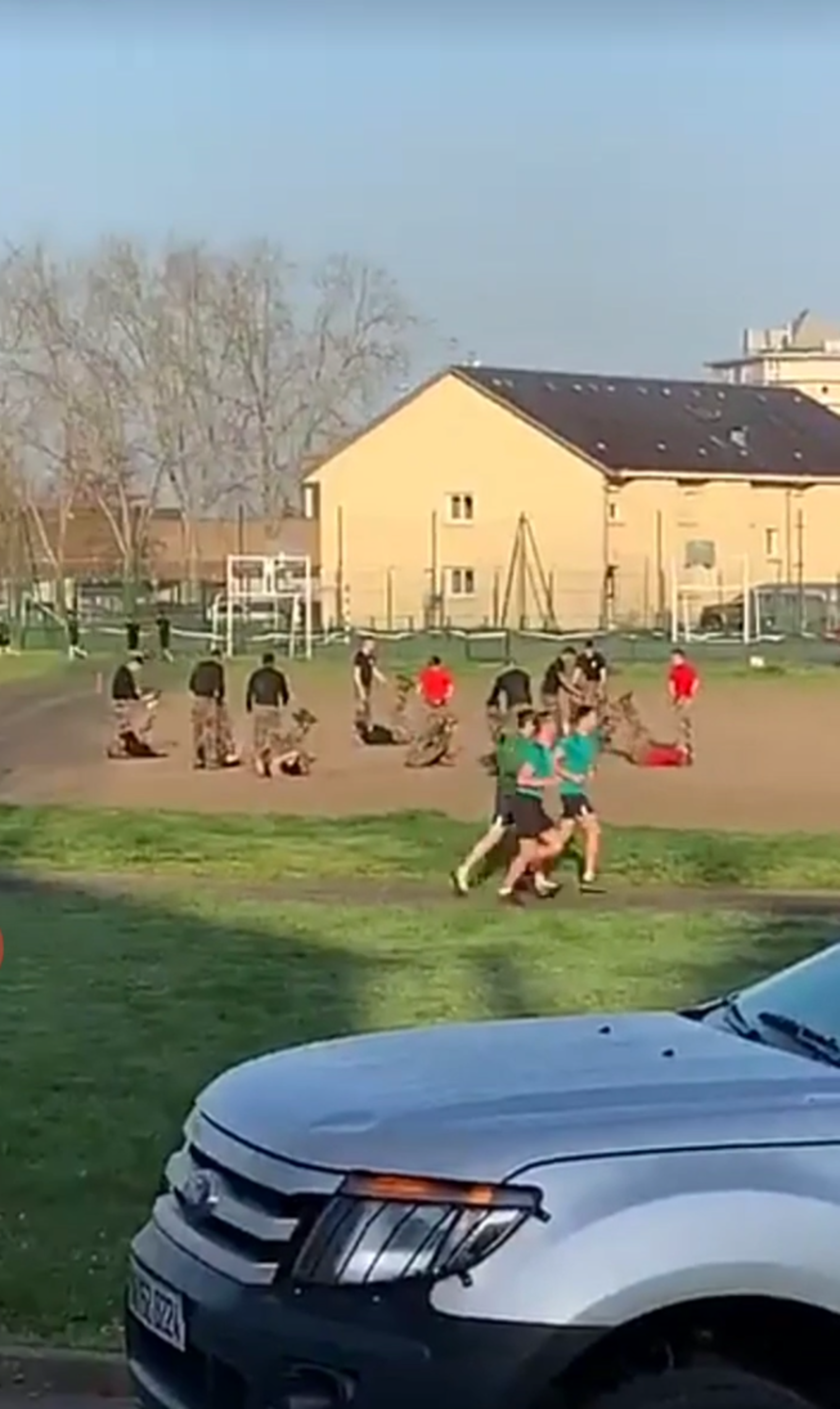The French military had recorded “several dozen” cases of the Covid-19 coronavirus by March 20th, the Ministry of Defence in Paris has told Mediapart. The armed forces are having to act swiftly both to safeguard their 270,000 personnel and their families, and to ensure that they can fulfil their current military missions. But Mediapart has also been told that the ministry was initially slow to apply the full range of safety and precautionary measures against the disease.
When questioned about the preventative measures taken on its army, air and naval bases, the Ministry of Defence told Mediapart: “The ministry is applying the Ministry of Health's prevention measures very rigorously.” Among the measures taken to check the spread of the virus the ministry cited the “deployment of homeworking”, the use of teams working in “alternate” shifts and the “closure of academies and the postponement of all non-operational activities”. It has also suspended “all gatherings, including those involving sport or [military] traditions”.
However, this last claim raises some awkward questions for the ministry. Several accounts from personnel at army bases indicate that gatherings involving several dozen or even several hundred soldiers continued to take place until at least March 18th, and that in some units collective sport or fitness activities were still taking place until at least March 20th.

Enlargement : Illustration 1

In a video filmed on March 19th at an infantry regiment based in central France, and then put online by its author (see screen grab opposite), around 30 soldiers can be seen on a sports field.
Around ten men in uniform can be seen at an obstacle course, with several soldiers standing just a few centimetres from each other. The person filming the video comments ironically: “No, we're not catching the coronavirus guys! Coronavirus doesn't affect soldiers!”
A soldier at the base contacted by Mediapart confirmed that sports events were held in that regiment and also that there were gatherings involving several dozen soldiers. “On Monday morning we gathered together as usual for the regimental parade,” said the soldier. “There were around 500 of us including the general staff. On the same day several companies went running, more than 20 or 30 were working up a sweat. Obviously at times like that you cough....”
The only place where major measures seem to have been taken is in the “mess” or military canteen. Here soldiers are required to eat one per table and no longer serve themselves but are instead now served by canteen staff. “Apart from going to the mess, we assemble in our companies and 30 to 50 of us march 20cm to 40cm from each other,” said the soldier.
At the end of last week the regiment's infantry soldiers learnt that they were going to be put in lockdown. Some of them will spend three weeks with the regiment without going home, while another section will stay at home. Then the groups will swap over. Yet despite this, collective sports continued, the same soldier told Mediapart. And this was despite the fact that the company had three suspected virus cases - housed in a building some distance away – and that by definition they did not know if there were also carriers of the disease who showed no symptoms. “It was contradictory,” said the young soldier. “They were taking half-measures. We were told 'Stop doing that but carry on doing that.' Why didn't they make us all go home?”
In another infantry regiment, in the west of France, another soldier confirmed that he continued to go for runs in a team of eight people in the week beginning March 16th. He also pointed to the contradictory nature of the measures taken by his hierarchy. “We were 'confined', in other words for the sake of appearance we were put a metre apart during parades,” he said. “But once we were back in our dormitory of ten people it was impossible to respect the rules.”
At the airbase at Creil, in the Oise département or county north of Paris, a member of the personnel said that there have been 16 positive cases so far. Some 2,500 people work on that base, including 800 civilians. “I was in direct and prolonged contact with one of those who was ill,” the member of personnel told Mediapart. “When I started to get a cough and develop a temperature and when my doctor detected a lung infection, I called my managers to find out what to do. 'We don't know,' they told me.” Having made his own way to hospital at Amiens in northern France to get himself tested, he ultimately tested negative for Covid-19.
This member of the base personnel thinks that the military top brass initially found it hard to handle the situation. “There was no bad intent, but they didn't know what to do because they're not doctors,” he said. “And they are making do with the – rather reduced - means that they have.” While waiting for preventative measures to be organised more effectively, soldiers and civilian defence personnel have been making do as best they can. “On Monday the guys in my team and I each put in 10 euros of our own money to send a guy to go to the supermarket and buy Javel [editor's note, bleach],” said the member of personnel at the Creil airbase, who has retained his sense of humour in the face of the situation. “It's our well-known 'resilience potential' [editor's note, ability to cope with a crisis],” he said. “The French are known for working with next to nothing. We're given nothing, we're told to do it, and we sort it out and do it.”
---------------------------------------------------------------------------
- The French version of this article can be found here.
English version by Michael Streeter


